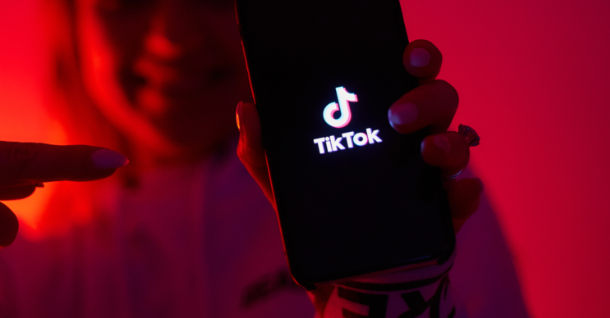Social media has become an integral part of our lives. We use these platforms every day to connect with friends, stay up-to-date on news and trends, express ourselves, and be entertained. But with new social networks launching all the time, it can be tough to keep track of what’s hot right now.
In this post, we’ll break down the top trending social platforms that are making waves and gaining users in 2022. Whether you want to stay on top of the latest viral content, connect with people worldwide, or grow your personal brand, these are the top sites you should pay attention to today.

The Top Trending Social Media Platforms Right Now
TikTok

Over the last couple of years, TikTok has exploded in popularity, especially among Gen Z users. On this platform, people create and share short videos set to music ranging from dances, lip syncs, comedy bits, recipes, and more.
With its extremely intuitive interface and advanced algorithm that learns your tastes quickly, it’s easy to lose hours of your day scrolling through the addictive feed. TikTok has also given rise to influencers and trends that have crossed over into mainstream pop culture.
Some key stats:
- Over 1 billion monthly active users worldwide
- Growth of over 75% from 2020 to 2021
- Average user spends 52 minutes per day on the app
- 41% of users are aged 16-24
Diaspora
- Diaspora, created by the Diaspora Foundation, is one of the best twitter alternatives. Unlike Twitter, it is decentralized rather than centralized, with a network of interconnected servers known as pods.
- You must first join a pod (or create your own), after which you can interact with all other connected pods. Unlike Twitter, you won’t have to worry about data or privacy issues with Diaspora.
- It allows you complete control over your privacy — you can use it anonymously without disclosing your identity.
- This social networking site does not allow for monetization or the sale of advertisements. Diaspora*does not gather any personal information.
The website was built with the ideas of decentralization, privacy, and freedom in mind. You can use tools like photographs, posts, and hashtags to participate in discussions about current events and topical topics.

While Instagram has been around for a decade, it remains one of the top sites today. Users flock to it to share photos and videos, plus see visual content from friends, brands, creators, and influencers.
Instagram really took off with the rise of influencer culture and transformed how businesses market themselves online. And with the addition of IGTV long-form video, Instagram Stories, Reels short videos, and live streaming, there are plenty of ways to connect and express yourself.
Fun facts about Instagram today:
- Roughly 2.5 billion global downloads to date
- 500 million daily active Stories users
- 60% of users visit Instagram daily
- More than 40 billion photos shared so far
BeReal
A recent breakout social media app that’s challenging the curated feeds on sites like Instagram is BeReal. On BeReal, users get a daily notification at a different time, prompting them to take and share a photo of what they’re doing in the moment within 2 minutes.
This format strips away filters and performance pressure. Instead, it provides an authentic look into your friends’ daily lives from brushing their teeth to commuting to class. There are no likes or comments either.
What makes BeReal pop:
- Over 15 million global downloads as of July 2022
- Ranks #1 social media app in Apple App Store in the US as of July 2022
- Appeal of seeing unedited, real-life moments from connections
- Emphasis on authenticity over chasing “likes”
For those looking for an old-school message board experience, Reddit remains massively popular. It’s essentially a massive collection of forums on every topic imaginable, from news and politics to niche hobbies and passions.
Reddit is home to over 100,000 active subreddits with posts that users can upvote, downvote, and comment on. It’s a go-to for meme culture, viral content, breaking news discussion, and community interaction.
The Reddit numbers:
- 52 million daily active users
- 49% of users are from the US
- Over 100,000 active communities
- Around 70,000 active subreddits in 2022
- The most upvoted post has over 800,000 upvotes
Discord

Discord gained traction as a chat app for gamers but has since expanded to include all types of communities. On Discord, users can create servers and channels around specific topics to host text, audio, and video conversations.
It offers robust tools for moderating and engaging members plus integrations with other platforms like YouTube, Reddit, and Twitch. The always-on nature makes it simple to pop in and talk about shared interests.
Discord by the numbers:
- More than 150 million active monthly users
- Average user spends 4+ hours each day on Discord
- 19 million+ active servers with over 6 million created in 2021
- Over 85 million messages are sent daily
- Popular among ages 18-49
YouTube

YouTube serves as the go-to hub for video content that’s informative, entertaining, or inspiring. From music videos and shows to tutorials, reviews, commentary, and more – YouTube has it all.
And with over 2 billion monthly users around the globe, it’s clear YouTube has massive cultural influence and engagement. Many popular creators have used it to build media empires and full-on entertainment brands.
The power of YouTube:
- Over 2 billion monthly logged-in users visit YouTube
- Every day, over a billion hours of videos are watched
- 500 hours of new content uploaded every minute
- Videos are localized in over 100 countries, available in 80 languages

For up-to-the-second news, current events, gossip, viral content, and memes – Twitter remains a top social network. The 280-character tweet limit allows users to share quick thoughts and updates on what’s happening in the world.
Twitter is also popular for following celebrities, politicians, athletes, journalists, brands, and more. Scrolling the feed makes you feel plugged into the 24/7 conversations unfolding online and IRL.
The stats behind the tweets:
- Approximately 237 million daily active users
- 500 million tweets sent per day
- 90% of daily active users access Twitter via mobile
- 80% of Twitter users are affluent millennials
Twitch
When it comes to live streaming, Twitch leads the pack. It initially focused on video game live streaming but has since expanded to all topics including sports, music, talk shows, and more.
Viewers can chat with creators in real-time, donate, subscribe for perks, and build communities around their favorite streamers. It’s extremely interactive and makes fans feel connected to the creators they love.
What makes Twitch stand out:
- Average 2.8 million monthly active streamers
- Over 15 million+ daily visitors
- 1.4 million+ average concurrent streamers daily
- Users watched over 22 billion hours of content in 2020
- Popular among ages 18-34
For bookmarking images and links by interests, Pinterest remains widely popular. Users “pin” visual content to personalized boards to easily access later. It’s often used to save recipes, travel destinations, fashion and beauty inspiration, home decor, gift ideas, and lots more.
Pinterest is a top traffic driver to websites and blogs as users seek out new ideas and recommendations. It’s visual and evergreen nature make it perfect for planning, daydreaming, or shopping.
Pinterest by the pin numbers:
- 478 million monthly active users globally
- Users have over 200 billion pins on 5 billion boards
- 81% of users say Pinterest helps them take action
- 93% of weekly pinners have purchased something seen on Pinterest
- 71% of weekly users are millennials or Gen Xers
Snapchat
Snapchat pioneered the idea of ephemeral photo and video messaging. While the posts vanish after 24 hours, the app has maintained steady engagement – especially among younger users who enjoy the silly lenses and filters.
Snapchat also leverages user-generated content instead of an algorithmic feed. And Discover offers curated content from top publishers. The intimate feel makes Snapchat a popular spot for daily connection.
The appeal by the numbers:
- 347 million daily active users on average as of Q2 2022
- User spend over 30 minutes per day on the app on average
- 90% of daily active users create Snaps every day
- 500+ Discover channels deliver content to over 125 million monthly viewers

For professional networking and career development, LinkedIn rules the space. Users create profile summarizing work history and skills. You can then connect with colleagues, join industry groups, follow companies, and search jobs.
LinkedIn prioritizes high-quality content that educates and informs. Many leverage it to build thought leadership, share insights, and boost personal branding. It’s also vital for sales prospecting and recruiting.
Why LinkedIn connects:
- 810+ million members worldwide
- 59% of users check LinkedIn at least once per day
- Every second, 2 members are hired on LinkedIn
- The #1 channel for social selling
- Popular among ages 25-34
Nextdoor
Nextdoor has emerged as the go-to for hyperlocal connections. Users join groups based on their neighborhood or city to get recommendations, buy/sell items, share local news and events, recover lost pets, and more.
Nextdoor provides a digital version of the old-school neighborhood community. Features like emergency alerts and crime reports make it useful for safety and staying informed.
Nextdoor by the numbers:
- 36 million weekly active users globally
- 1 in 3 US households use Nextdoor
- Posts doubled YoY in 2021
- 53% of users are ages 45-64
- 85% of users report feeling more connected to their community after joining
Aether

- Aether, a decentralized peer-to-peer networking platform, is another potential Twitter alternative. It enables users to create and join communities.
- Aether offers a lot of interesting characteristics. Posts, for example, are automatically erased after six months; content will only survive longer if it is saved.
- To put it another way, if a post contains irrelevant material, it will be deleted.
- Aether allows individuals to create their moderation policies, allowing greater control and avoiding centralized censorship. Moderation, unlike Twitter, is open and transparent.
- When content is erased, you can see who deleted it and why they did so. In addition, there is a procedure for retrieving that content where needed and acceptable.
- Furthermore, communities can vote to impeach moderators if they are out of control, and they can remove posts when it is not appropriate.
- Locally, users can also block mods, which would undo any modifications performed by that mod for that user.
Using Social Media to Enrich – Not Waste – Your Time
With so many sites competing for our attention, it’s easy to mindlessly scroll for hours. However, when used intentionally, social media can add value to your life in multiple ways:
Get inspired – Follow artists, creatives, and makers to spark your imagination and creativity. Let inspiration hit you throughout the day.
Stay informed – Follow reporters, journalists, experts, and thought leaders to stay up-to-date on important news and ideas. Make your feed educational.
Deepen passions – Join forums or groups focused on your niche hobbies and interests to geek out with fellow enthusiasts.
Give back – Many nonprofits leverage social platforms to share causes and spread messages. Support them by amplifying their content through shares and donations.
Promote your work – Artists, merchants, bloggers, and other creators can build an audience around their craft and business. Social media allows you to showcase and market your work.
Build community – Form relationships and connections over shared interests, backgrounds, goals and experiences. Social media keeps you engaged.
Get recommendations – Follow influencers in topics like food, books, fashion, travel and more to discover new things and get recommendations.
Laugh and relax – Inject humor and levity into your day with uplifting animal accounts, meme accounts, comedy videos or funny tweets.
See social media as more than mindless scrolling. Take advantage of the good it offers. But don’t forget to balance it with real-world connections and activities too.
Frequently Asked Questions
How do social media sites make money?
Most social platforms rely on advertising revenue. Companies pay to promote products/services through ads targeted to specific demographics and interests. Sites also offer premium subscriptions with additional features. Some influencers use sites to drive product sales and sponsorships.
Are social media platforms safe?
Most offer privacy controls like private accounts and block/report tools. But you should still exercise caution in how much personal info you share publicly. Limiting ad targeting can help too. And watch for signs of bots, scams, misinfo, etc. Moderating and not oversharing is key.
Why is TikTok so popular now?
Its algorithm quickly learns your interests and provides a super addictive, endless stream of entertaining short videos. Plus, it’s easy and fun to create content or participate in trends. The community fosters talent/creativity. And there’s less pressure than curated sites like Instagram.
How can social media impact mental health?
Positively, sites can provide community and combat isolation. But negatively, many users struggle with low self-esteem, anxiety, FOMO, and dopamine feedback loops that promote addiction-like behaviors. It’s key to monitor your emotional state when using social platforms and implement healthy boundaries.
Is it risky for kids to use social media?
Yes, most platforms require users to be 13+ to create accounts. But parental controls and monitoring are still crucial. Limiting use, keeping accounts private, avoiding sharing location/personal details, and talking about online safety is key. Kids still require guidance in navigating social platforms.
Should businesses use social media?
Yes, it provides a direct way to reach and engage with target demographics. Businesses can promote products, share brand stories, provide customer service, gather feedback, and build loyal communities. Just ensure your social presence aligns with branding and provides an authentic look behind the scenes.
How often should you post?
It varies based on platform algorithms. For Twitter/Instagram, 1-2 times per day works well. For YouTube/TikTok, 2-3 quality videos per week is often recommended. Watch your analytics and aim for consistency over constantly posting to avoid burnout. Quality over quantity.
What are the pros/cons of social media?
Pros include connectivity, entertainment, sharing interests, networking, learning, creative expression, inspiration, marketing for businesses. Cons include wasted time, comparison anxiety, privacy concerns, spread of misinformation, and mental health impact of too much use. Moderation is key.
Disclosure: The articles, guides and reviews on BlowSEO covering topics like SEO, digital marketing, technology, business, finance, streaming sites, travel and more are created by experienced professionals, marketers, developers and finance experts. Our goal is to provide helpful, in-depth, and well-researched content to our readers. You can learn more about our writers and the process we follow to create quality content by visiting our About Us and Content Creation Methodology pages.

